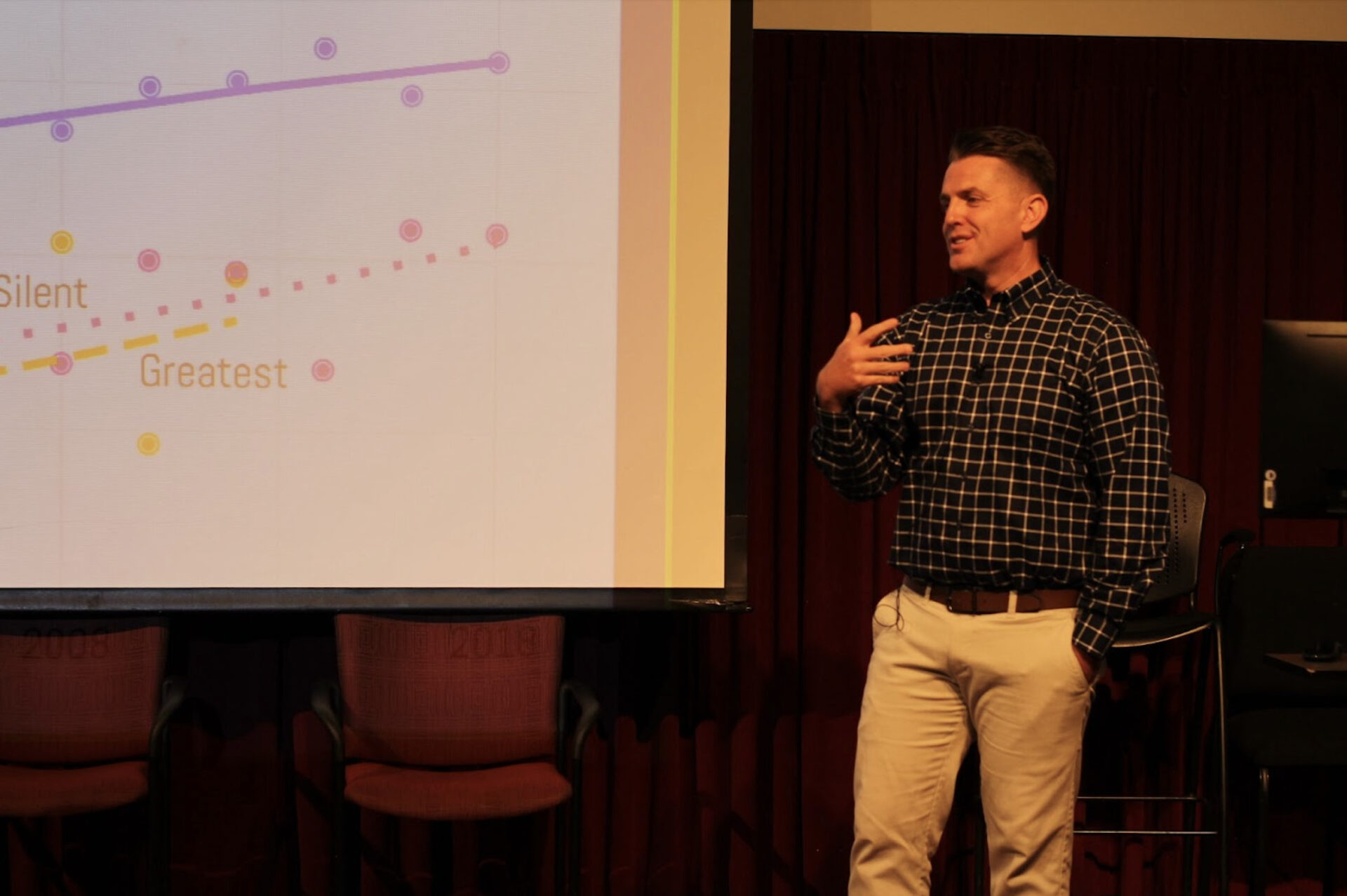By Anna LaTour

Editor’s note: Education Week coverage can be found in this section of the website.
BYU psychology professor Scott R. Braithwaite shared his research with Education Week attendees about the rise of atheists, agnostics and people who are unaffiliated with organized religions.
During his Monday lecture based on a recent survey by the Pew Research Center, Braithwaite said this group called the “nones,” is outnumbered by Christians today by a ratio of 2-to-1 compared to a 5-1 ratio in 2007.
Although not sourced, Braithwaite reported he heard within The Church of Jesus Christ of Latter-day Saints that there is an 80% loss of youth from between the age of 12 to adulthood.
Braithwaite explored the question of why some members are leaving the Church and said there might be a psychological component which is not talked about enough: the concept of simple stories.
The problem with simple stories
According to Braithwaite, all members with or without a faith crisis, fall victim in creating simple stories.
“Simple stories is the idea that our mind likes stories, and it takes whatever information available to us and it strings it into a story that makes sense to us,” Braithwaite said.
He said people simplify complex stories “seamlessly” and they do not realize it is happening when they do it. “In therapy, we are helping people unpack that story.”
Creating simple stories can cause people to develop a faith crisis or prevent others from helping those who are struggling with their faith. Simple stories demand faith to be simple: black and white.
Braithwaite used James Fowler’s Stage 3, the synthetic conventional stage of the Stages of Faith theory to explain this idea. At this stage, people may ignore conflicts of their beliefs because of their fear of inconsistencies.
Braithwaire shared an example and said active Church members might make simple stories about those who leave. They may say those people were not acting in good faith, they were just bad people or that they desired to sin in secret. Braithwaite said these are all avoiding the conflicts which struggling members are facing.
One of the problems according to Braithwaite, is that Church members want things clean and tidy.
“We want there to be good guys and bad guys, and we want our guys to be the good guys,” Braithwaite said. “However, this makes people’s crises of faith a crisis of expectations. Faith crises happen when expectations are not met and when there is dissonance in people’s beliefs.”
“We tell simple stories every Sunday at Church and then reality gets messier and more complicated, then people get disenchanted with it,” Braithwaite said. “They get frustrated and they walk away.”
He also emphasized that those who are struggling the most and experiencing the most pain are people who desperately want to believe but can’t find a way to do it.
How to help
Braithwaite said stage 4 is the crisis of faith. According to him, a person may be able to tell if someone is going through a faith crisis. Braithwaite described them to be perhaps not going to church, appearing “edgier” and “a little bit irritable.”
“The reason for that is because they are experiencing horrific pain. That is why being at church is painful for them,” he said.
He also pointed out that even though it might be easier to avoid them, this is not what they need.
“What they need is someone who can say, ‘I can tell that you are hurting. I wonder if there is something I can do to help, even if it is just to listen,’” he said.
Braithwaite explained stages are a progression. He said one should not encourage someone in stage 4 to return to stage 3 and tell them to continue to “just pray or go to the temple.”
He suggested we help them to stage 5: conjunctive faith. In this stage, individuals can resolve their conflicts by learning to become comfortable with the complexity and mystery of faith, unlike the stage 3 approach of looking for right answers.
Braithwaite referenced Alma 32 and pointed out having faith is not the same as having perfect knowledge.
“Faith is terrifying. Faith does not let our mind come to rest. It asks to live in a place where we don’t know,” he said. “We don’t have perfect knowledge, but we choose to put our trust in God.”




